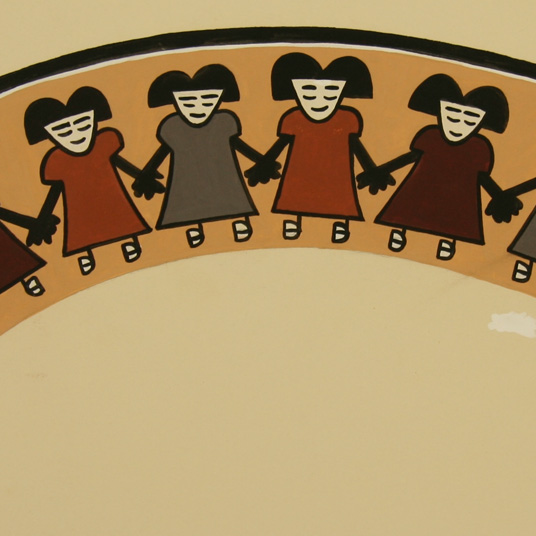
Re-gendering Peruvian Archaeological Museums with Ulla Holmquist Pachas
May 6, 2025, 5:30–7:00 PM
In this Research and Academic Program lecture, Ulla Holmquist Pachas (Pontificia Universidad Católica del Perú and Museo Larco, Lima, Peru / Class of 1974 Fellow) expands on recent multidisciplinary research that deepens further understanding of indigenous histories, and, by extension, other ways of being in this World. Peruvian archaeological museums seek to connect our audiences with this knowledge, which can facilitate constructing a better coexistence. Essential to this is the way our ancestors lived in community: their direct relationship with the natural world (features of the land, bodies of water, and celestial beings) and the creative output of our ancestors’ hands that relied on these relationships (their pottery, their metalwork, woven attires and mantles, wood carvings, etc.), which our ancestors considered creatures filled with camac or vital essence or power. The ties to this nurturing body that gives and supports all life, usually regarded as “Mother Earth” or Pachamama—so essential and central to every community—has not yet been adequately incorporated in our archaeological museum narratives. Once this absence is addressed, this more holistic view will enhance the understanding of the real role and importance of each creation that we house and exhibit in our museums. Re-gendering the Peruvian archaeological museums is not only demanded by the growth of academic knowledge, but by the need to be able to connect with other ways of living and understanding coexistence in today’s World.
Presented in person in the Clark auditorium. A 5 pm reception in the Manton Research Center reading room precedes the event.
Image: Nazca women holding hands (detail), roll-out. Museo Larco Archive, Lima, Peru.